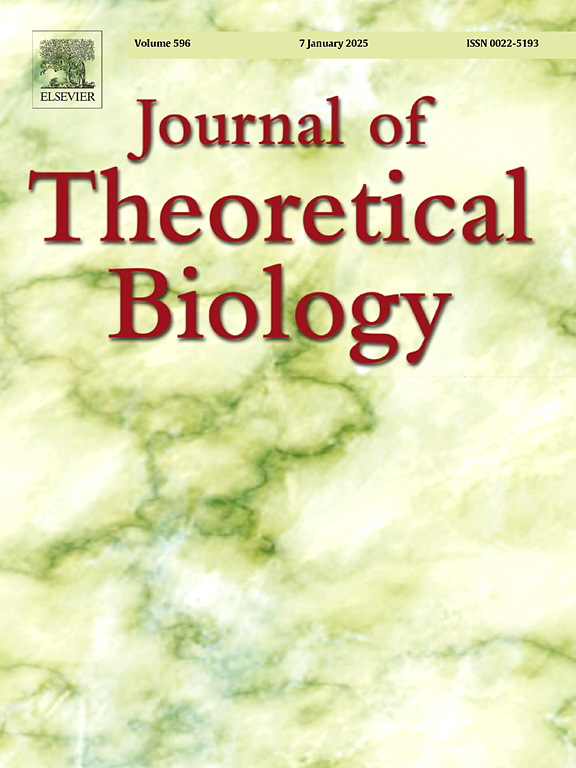系统发育中马尔可夫二叉树的近似贝叶斯计算。
IF 2
4区 数学
Q2 BIOLOGY
引用次数: 0
摘要
系统发育树描述了进化过程中物种之间的关系,并提供了有关多样化速度的信息。为了理解宏观进化背后的机制,我们考虑了一类称为马尔可夫二叉树(mbt)的多类型分支过程。mbt允许基于性状的多样化率变化,并为系统发育树提供灵活和现实的概率模型。我们开发了一种近似贝叶斯计算(ABC)方案,利用系统发育树形状的信息来推断MBT参数的比率。我们通过模拟研究评估了这种推理方法的准确性,并发现我们的方法能够检测多样化率的变化,其准确性与基于似然的方法相当,并且通常优于基于似然的方法。在应用于现实生活中的鳞片系统发育中,我们加强了从早期研究中得出的结论,特别是支持卵/活两个方向上的过渡的存在。我们的方法展示了更复杂的进化模型与无似然方案一起用于系统发育推断的潜力。本文章由计算机程序翻译,如有差异,请以英文原文为准。
Approximate Bayesian computation for Markovian binary trees in phylogenetics
Phylogenetic trees describe the relationships between species in the evolutionary process, and provide information about the rates of diversification. To understand the mechanisms behind macroevolution, we consider a class of multitype branching processes called Markovian binary trees (MBTs). MBTs allow for trait-based variation in diversification rates, and provide a flexible and realistic probabilistic model for phylogenetic trees. We develop an approximate Bayesian computation (ABC) scheme to infer the rates of MBT parameters by exploiting the information in the shapes of phylogenetic trees. We evaluate the accuracy of this inference method using simulation studies, and find that our method is able to detect variation in the diversification rates, with accuracy comparable to, and generally better than, likelihood-based methods. In an application to a real-life phylogeny of squamata, we reinforce conclusions drawn from earlier studies, in particular supporting the existence of ovi-/viviparity transitions in both directions. Our method demonstrates the potential for more complex models of evolution to be employed in phylogenetic inference, in conjunction with likelihood-free schemes.
求助全文
通过发布文献求助,成功后即可免费获取论文全文。
去求助
来源期刊
CiteScore
4.20
自引率
5.00%
发文量
218
审稿时长
51 days
期刊介绍:
The Journal of Theoretical Biology is the leading forum for theoretical perspectives that give insight into biological processes. It covers a very wide range of topics and is of interest to biologists in many areas of research, including:
• Brain and Neuroscience
• Cancer Growth and Treatment
• Cell Biology
• Developmental Biology
• Ecology
• Evolution
• Immunology,
• Infectious and non-infectious Diseases,
• Mathematical, Computational, Biophysical and Statistical Modeling
• Microbiology, Molecular Biology, and Biochemistry
• Networks and Complex Systems
• Physiology
• Pharmacodynamics
• Animal Behavior and Game Theory
Acceptable papers are those that bear significant importance on the biology per se being presented, and not on the mathematical analysis. Papers that include some data or experimental material bearing on theory will be considered, including those that contain comparative study, statistical data analysis, mathematical proof, computer simulations, experiments, field observations, or even philosophical arguments, which are all methods to support or reject theoretical ideas. However, there should be a concerted effort to make papers intelligible to biologists in the chosen field.

 求助内容:
求助内容: 应助结果提醒方式:
应助结果提醒方式:


